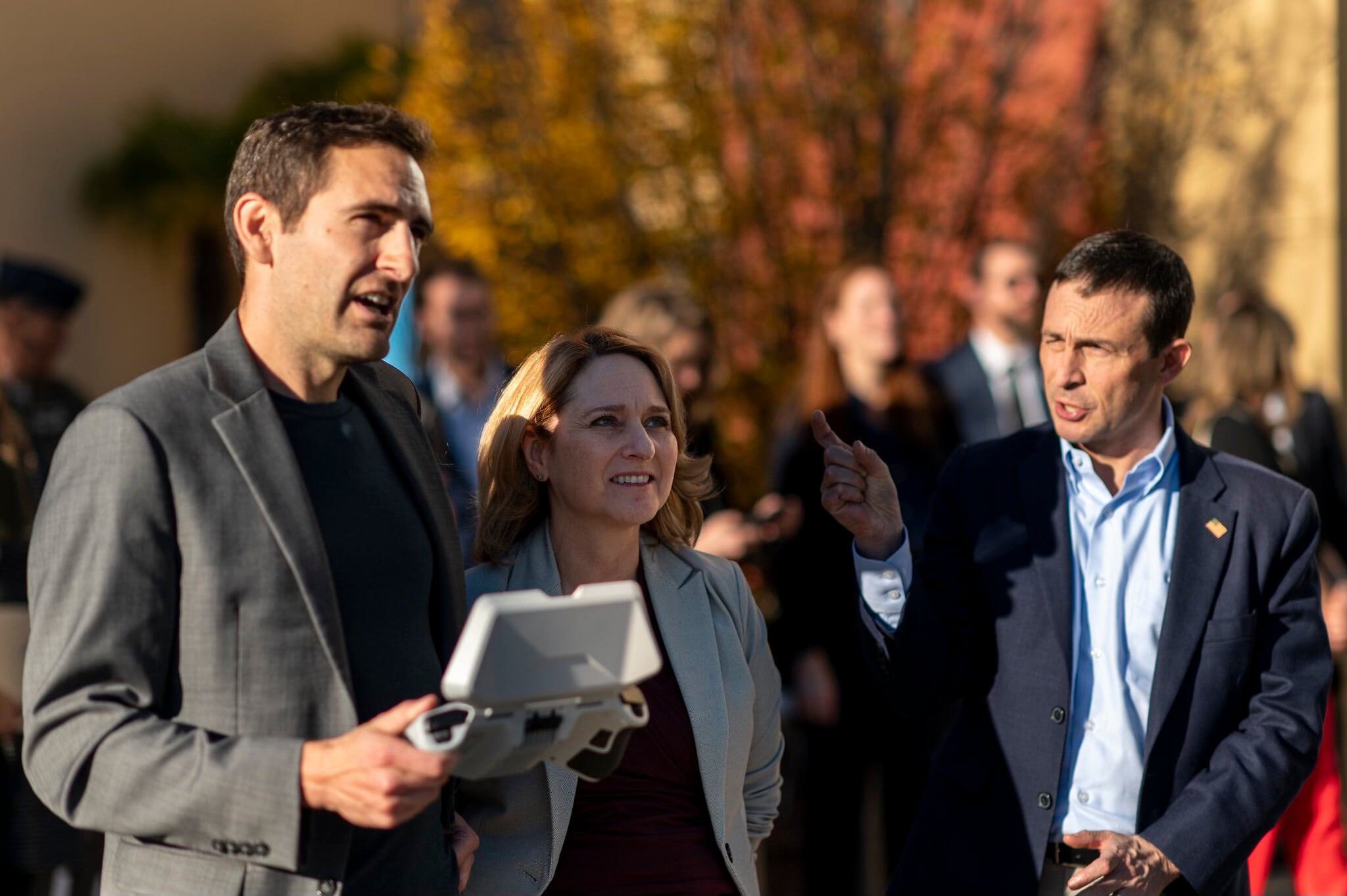WASHINGTON — The Pentagon’s Silicon Valley outreach arm awarded Anduril Industries a five-year contract worth up to $99 million that makes the company’s counter-drone artificial intelligence technology available across the military, the company announced Tuesday.
The award from the Defense Innovation Unit will provide the military with counter unmanned aircraft system capabilities that can defend forces from “hobby drones to those flown by state actors,” according to the defense technology company. The technology uses the company’s Lattice artificial intelligence operating system and a network of sensors to autonomously detect, classify and track targets.
The deal will allow the Army, Navy, Air Force and Marines to purchase the counter-drone solutions as a service, meaning Anduril will manage and sustain the systems that a customer purchases. Anduril’s suite of autonomous c-UAS solutions ingests surveillance data to detect, track and alert military users to potential threats. That system has been used for base security at Marine Corps Air Station Miramar.
Anduril Chief Revenue Officer Matthew Steckman said service contract will allow customers to take advantage of continuous innovations to “keep pace with the threat that state and non-state unmanned systems present.”
“Because the services will be buying C-UAS as a service, Anduril will be able to provide a range of systems based on a particular threat profile instead of a one size fits all model,” Steckman said. “We can also focus on continuous-development and continuous-release of our software operating system, ensuring that the warfighter is always getting the best tech.”
Anduril and DIU worked from prototype to production in 18 months, a timeline faster than tedious yearslong acquisition processes that hamper the Pentagon’s ability to work with smaller companies and startups. Steckman said the partnership is an example of how the Pentagon can successfully work with nontraditional contractors and speed up acquisition timelines.
Anduril said it demonstrated its capabilities in multiple combat assessments and competitive test events.
“This award is precisely the kind of contract vehicle DOD should be issuing to help companies bridge the Valley of Death,” Steckman said, referring to a common problem where promising technologies fail to integrate into programs of record. “Working together, Anduril and DIU were able to move from prototype to production in just 18 months, including a rigorous meritocratic testing and assessment period. This process is repeatable, and it is one the Department should do more.”
Andrew Eversden covers all things defense technology for C4ISRNET. He previously reported on federal IT and cybersecurity for Federal Times and Fifth Domain, and worked as a congressional reporting fellow for the Texas Tribune. He was also a Washington intern for the Durango Herald. Andrew is a graduate of American University.






